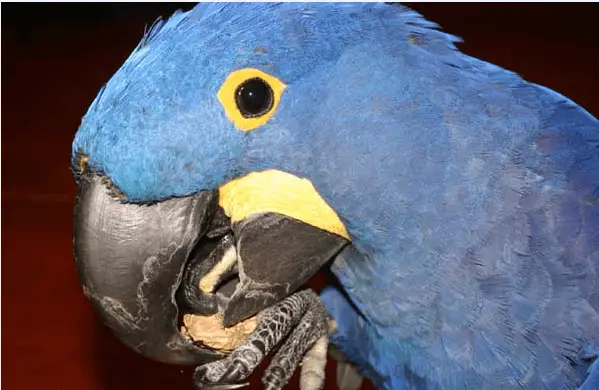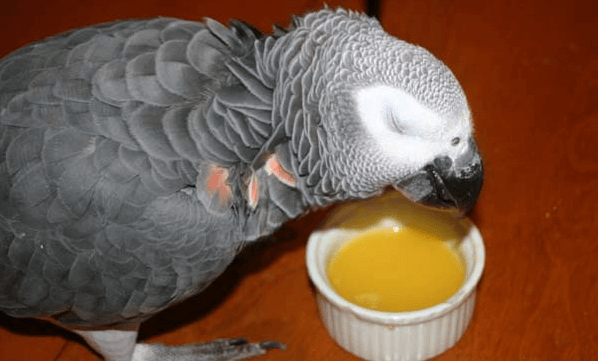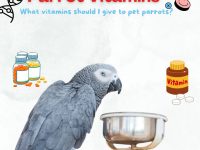
Store food of parrot: From farm to supermarkets, the Canadian agri-food industry works to provide a safe food supply to consumers.
However, once the food is purchased, it is up to the consumer to handle and store the food properly to prevent spoilage, contamination and the development of harmful bacteria that can cause disease.
When shopping, check the “best before dates” on the packaging.
Buy only the amount of food you can eat during the recommended time.
Choose long-life items like tin cans first. Choose refrigerated food, cold cuts and frozen items just before going to the cash counter.
Always buy foods that are at the right temperature. For example, dairy counter foods should be cold and cooked foods such as roast chickens should be hot.
Once you have purchased the food, go straight home and store the cold perishable food in the fridge or freezer.
Bacteria multiply rapidly when they are in the danger zone between 4 ° C (40 ° F) and 60 ° C (140 ° F). So, in order to preserve the quality and safety of refrigerated foods, it is important to store them at a maximum temperature of 4 ° C (40 ° F).
Cooked food should never be left out of the refrigerator or oven for more than 2 hours. Low temperatures keep food fresh and prevent the growth of most bacteria.
However, even when food is stored at the correct temperature, the organisms responsible for food spoilage can continue to grow and multiply slowly.
There is therefore a limited time during which the food will keep its freshness and can be consumed without danger. It is a good idea to write the date of purchase or cooking on the containers. Make sure your pantry, refrigerator and freezer are clean.
Once opened, store foods in foil, plastic wrap, airtight plastic bags or containers to prevent them from drying out or becoming contaminated.
Unfortunately, you can’t smell, see or even taste the harmful bacteria and other contaminants that cause infections and food poisoning.
Remember, when in doubt, throw it away!
The storage times in the following tables are calculated from the date of purchase and only apply to foods handled properly.
BAKERY PRODUCTS Revised: 01-Dec-03
Store food of parrot: Baked goods containing pants, meat or vegetables or covered in icing made with cream cheese, whipped cream or eggs should be refrigerated.
| Food | Ambient | Fridge | Freezer |
| Home bakery | 2-3 weeks | 2 months | 8-12 months |
| Muffins | 1-2 days | 7 days | |
| Store-bought bread | 2-4 days | 7-14 days | 1-3 months |
| Pita bread | 2-4 days | 4-7 days | 1-2 months |
| Rolls | 3-4 days | 7 days | 2 months |
| Pumpkin pie | no | 7 days | 1-2 months |
| Fruit tart | 1-2 days | 7 days | 6 months |
FROZEN PURCHASED FOODS
When shopping, choose frozen foods right before you go to the checkout counter. Bring these foods straight home and store them in the freezer as soon as possible.
Place a thermometer in your freezer and often check that the temperature is -18 ° C (0 ° F).
For maximum safety, thaw these foods in the refrigerator. But if time is of the essence, thaw in a sink full of cold water, making sure to change the water every half hour. Or in the microwave according to the manufacturer’s instructions and cook immediately.
| Food | Freezer | Refrigerator once thawed |
| Lamb, chops | 8-10 months | 2-3 days |
| Lamb, roasted | 8-10 months | 3-4 days |
| Beef | 2-3 months | cook frozen |
| Ice cream | 1 month | no |
| Pancakes, waffles | 2 months | 3-4 days |
| Fresh seafood | 2-3 months | 1-2 days |
| Berries | 4-6 months | 4-5 days |
| Meatballs | 6 months | cook frozen |
| Quiches | 12 months | cook frozen |
| Concentrated fruit juices | 6-12 months | 7-10 days |
| Vegetables | 8-12 months | 2 weeks |
| Pastry | 2-3 months | 1 day |
| Pizza | 1-2 months | 1 day |
| Raw fatty fish | 2-3 months | 1-2 days |
| Lean raw fish | 3-6 months | 1-2 days |
| Yogurt sorbet | 2-4 months | no |
| Egg substitute | see expiration date | 6-7 days |
| Whole chicken and turkey | 12 months | 2 days |
| Ground chicken and turkey | 2-3 months | 1 day |
| Chicken and turkey pieces | 6 months | 2 days |
FOOD PURCHASED REFRIGERATED
Store food of parrot: Keep a thermometer in your refrigerator and often check that the temperature is below 4 ° C (40 ° F). Some bacteria can grow and multiply, albeit very slowly at this temperature. Then the food will stay fresh and safe for a limited time.
If you don’t plan to use them quickly, it’s best to put these foods in the freezer as soon as you buy them. Juices from raw meat, poultry and fish can contain bacteria.
Place the packages of these foods on trays to prevent the juices from dripping onto other foods.
| Food | Fridge | Freezer |
| Soy-based beverages | see expiration date | |
| Open fruit drinks | 7-10 days | |
| Sealed fruit drinks | Three weeks | |
| Sliced chicken, turkey | 1-2 days | |
| Roast chicken | 3-4 days | 3 months |
| Salads | 1-2 days | |
| Meats and sausages | 2-3 days | |
| Sealed margarine | 8 months | 12 months |
| Open margarine | 1-3 months | |
| Whole eggs | see expiration date | |
| Pizza crust | see expiration date | 3 months |
| Tortillas | see expiration date | 1-2 months |
| Fresh pasta | see expiration date | |
| Pizza | see expiration date | |
| Open seafood | 3-4 days | 3 months |
| Fresh fatty fish | 2-3 days | 2-3 months |
| Lean fish, fresh | 2-3 days | 2-3 months |
| Cooked fish | 1-2 days | 4-6 months |
| Fresh shellfish | 12-24 hours | 2-3 months |
| Fresh unshelled shrimps | 1-2 days | 2 months |
| Fresh peeled shrimps and scallops | 1-2 days | 3 months |
| Cooked fresh unshelled shellfish | 3 days | 2 months |
| Butter | Three weeks | 6 months |
| Firm cheese, sealed | 3-6 months | |
| Firm cheese, open | 3-4 weeks | |
| Firm cheese, sliced | 2 weeks | |
| Grated cheese, sealed | see expiration date | |
| Grated cheese, open | 5 days | |
| Semi-firm cheese, sealed | see expiration date | |
| Semi-firm cheese, open | 2-3 weeks | |
| Processed cheese, sealed | 3 months | |
| Processed cheese, open | 3-4 weeks | |
| Cream cheese | see expiration date | no |
| Cottage cheese, ricotta, quark | see expiration date | no |
| Milk, buttermilk | see expiration date | |
| Homogenized milk | see expiration date | 3 months |
| Sealed yogurt | see expiration date | |
| Open yogurt | 7-10 days | |
| Open fresh tofu (change the water daily) | 5-7 days | |
| Sealed tofu | see expiration date | |
| Fresh meat offal | 2-3 days | 3-4 months |
| Lamb chops | 2-3 days | 8-10 months |
| Roast lamb | 3-4 days | 8-10 months |
| Ground beef | 1-2 days | 2-3 months |
| Beef, roast beef | 2-3 days | 10-12 months |
| Pork, chops, ribs | 2-3 days | 8-10 months |
| Veal, chops | 3-4 days | 4-5 months |
| Veal, cooked meat | 3-4 days | 4-5 months |
| Fresh poultry, duck, goose, whole | 1-2 days | 3 months |
| Chicken giblets | 2 days | 3-4 months |
| Chicken and whole turkey | 2 days | 1 year |
| Ground chicken and turkey | 24 hours | 2-3 months |
| Chicken and turkey pieces | 2 days | 6 months |
FRESH FRUITS
Store food of parrot: Fruits can be stored safely at room temperature, but once ripe they will mold and spoil quickly. So, store ripe fruit in the refrigerator.
High-density vegetables, such as potatoes and onions, can be stored in a cold room. Other vegetables should be refrigerated to maintain their quality and safety.
Most fruit can be frozen, following the directions in a recognized freezing guide. The shelf life of frozen fruit at home is 6-12 months, depending on the fruit.
| Fruit | Ambient | Fridge |
| Apricots, uncovered until ripe | 1 week | |
| Uncovered pineapple | 2-3 days | |
| Bananas | until maturity 2 days (blackberries) | |
| Covered blueberries (not tightly) | no | 10 days |
| Cranberry, uncovered | no | 1-2 weeks |
| Lemons, limes covered | 1 week | 1 month |
| Covered strawberries (not tightly) | 2 days | |
| Covered raspberries (not tightly) | 2 days | |
| Cut fruits, fruit salad | no | 1-2 days |
| Kiwi fruit, covered | until maturity | 1-2 weeks |
| Mangoes | until maturity | 3 days (blackberries) |
| Melons, most varieties, whole, ripe, covered | until maturity | 3 days (ripe) |
| Melon cut, hermetically sealed | no | 2-3 days |
| Whole watermelon | A few days | 1 week (ripe) |
| Watermelon cut, hermetically sealed | no | up to 1 week |
| Nectarines, uncovered | until maturity | 1 week (blackberries) |
| Oranges, loosely covered | 1 week | 1 month |
| Grapefruit, covered | no | 1 month |
| Papayas | until maturity | 1 week (blackberries) |
| Open peaches | until maturity | 1 week (blackberries) |
| Uncovered pears | until maturity | 3-7 days (blackberries) |
| Apples in season, in a perforated plastic bag | no | 2 months |
| Apples out of season | no | 2 weeks |
| Plums | until maturity | 5 days (blackberries) |
| Grapes | no | 5 days |
| Tangerines, loosely covered | no | 1 week |
FRESH VEGETABLES
Most vegetables can be frozen by following the directions in a recognized freezing guide. The shelf life of frozen vegetables at home is 10-12 months.
| Vegetable | Ambient | Fridge |
| Garlic, uncovered | a few weeks | 4 months |
| Asparagus, wrapped in damp cloth or standing in water | 4-5 days | |
| Beets | 3-4 weeks | |
| Covered broccoli | 5-7 days | |
| Mature carrots, covered | 3-4 weeks | |
| Young carrots, covered | 2 weeks | |
| Celery, covered | 2 weeks | |
| Cauliflower, covered | 7-10 days | |
| Uncovered pumpkin | 1 week | |
| Cucumber and squash
summer (thin skin) |
1 week | |
| Winter squash (thick skin) | 1 week | |
| Spinach | 3-4 days | |
| Sprouted beans | 3-4 days | |
| Covered beans | 5 days | |
| Fresh herbs | 4-7 days | |
| But in ears | 2 days | |
| Covered turnip | 1 week | |
| Peas | 1-4 days | |
| Sweet peppers | 1 week | |
| Hot peppers | 1-2 weeks | |
| Tomato | until maturity | 2-3 days |
| Lettuce | 1 week |

Store food of parrot
LONG-STORAGE FOODS
If necessary, after opening, transfer these foods to an airtight bag or container.
To freeze, place in a freezer bag or wrap.
Some foods should be refrigerated after opening; check the label carefully.
Do not buy open food containers or cans that are bulging, severely dented, or leaky.
Store shelf-stable foods in a clean, dry and cool place.
| Food | Sealed in the pantry | Open in the pantry | Open refrigerator |
| Baby jars | see expiration date | no | 2-3 days |
| Commercial peanut butter | 6-9 months | 2-3 months | |
| Wrapped cookies | 2 months 1 month | ||
| Soy drink | see expiration date | 5-10 days | |
| Ready-to-serve cereals | 8 months | 3 months | |
| Wheat germ | 1 year | ||
| groats | 6-10 months | 4-6 months | |
| Breadcrumbs | 3 months | 2 months | |
| Salsas | 12 months | 2 weeks | |
| Store-bought jams and jellies | 12 months | 6 months | |
| Preserves | 2-5 years | 3-4 days | |
| Very acidic preserves | 12-18 months | 5-7 days | |
| Crackers | 6 months | 1 month | |
| Granolas | 3 months | 1 month | |
| White flour | 6-12 months | 6-8 months | |
| Whole wheat flour | 3 months | 6-8 months | |
| Corn flour | 6-12 months | 12 months | |
| Cornstarch | 18 months | 18 months | |
| Muffin mix, biscotins, pancakes | 12 months | ||
| Baking powder | 12 months | 12 months | |
| Baking soda | 12 months | 12 months | |
| Dried fruits | 6 months | 4 months | |
| Peanut oil | 12 months | 6-7 months | 12 months |
| Canola oil | 12-18 months | 6-9 months | 12 months |
| Safflower oil | 12 months | 9 months | 18 months |
| Pumpkin oil | 7 months | 2-3 months | 4-6 months |
| Linseed oil, sealed | no | no | 3 months |
| Linseed oil, open | no | no | Three weeks |
| Corn oil | 12-18 months | 6-9 months | 10-12 months |
| Nut oil | 7 months | 3-4 months | 6-8 months |
| Extra virgin olive oil | 9-12 months | 6-7 months | |
| Grapeseed oil, refined | 18-20 months | 6-8 months | 12 months |
| Cold pressed seed oil | no | no | 6 months |
| Sesame oil | 12 months | 8-9 months | 16 months |
| Soybean oil | 12-18 months | 6-9 months | 12 months |
| Canned fruit juice | 4-6 months | 8-12 days | |
| Legumes | 12 months | 12 months | |
| Popcorn | 2 years | ||
| Walnuts in the shell | 4 months | ||
| Shelled walnuts | 2 weeks | 1 month | |
| Vacuum sealed seeds | 12 months | ||
| Seeds in another package | 3 months | 2 weeks | 3 months |
| Nuts without salt | 9-12 months | ||
| Pasta | several years | ||
| White rice | several years | ||
| Brown rice | 6 months | ||
| Corn syrup | 12 months | 12 months |
HOME COOKED FOODS
Store food of parrot: Refrigerate cooked foods as soon as possible after eating. Once the food has cooled, cover with a plastic lid or plastic wrap.
Then use them quickly or freeze them, as they have a short shelf life.
If you have any doubts about the safety of leftover food, throw it out.
| Food | Fridge | Freezer |
| Hard-boiled eggs | 1 week | no |
| Cooked fish | 1-2 days | 4-6 months |
| Mashed potato | 3 days | |
| Rice and cooked noodles | 3 days | 3 months |
| Cranberry sauce | Three weeks | 1 year |
| Meat and vegetable soups | 3-4 days | 2-3 months |
| Cooked meats | 3-4 days | 2-3 months |
| Cooked poultry | 3-4 days | 3 months |
| Stews with meat or poultry, pies | 2-3 days | 3 months |
How to Store Parrot Pellets
SOURCE: BirdTricks




















